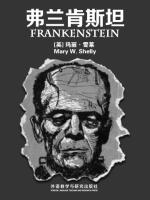The Monstrous Mirror: Humanity and Hubris in *Frankenstein*
用户818962
Mary Shelley’s *Frankenstein; or, The Modern Prometheus* (1818) is far
more than a Gothic horror tale. At its core, this seminal work of
science fiction interrogates the ethical boundaries of human ambition,
the consequences of unchecked scientific progress, and the profound
loneliness of existence—themes that resonate eerily with our modern
technological age. Shelley’s narrative, framed through the doomed
inventor Victor Frankenstein and his tormented Creature, subverts
traditional notions of monstrosity. Victor, the archetypal "mad
scientist," is driven by a narcissistic desire to conquer death and
nature. His obsession blinds him to moral responsibility, rendering him
the true antagonist of the story. The Creature, by contrast, emerges as
a tragic figure—a sentient being abandoned by its creator and rejected
by society. His violent actions stem not from innate evil but from a
desperate craving for connection and identity. Shelley forces readers to
question: Who is the real monster here? The novel’s structure—a
Russian doll of nested narratives—amplifies its themes of isolation.
Walton’s letters, Victor’s confession, and the Creature’s own eloquent
plea create a chorus of voices yearning to be heard. The Creature’s
self-education, his reading of *Paradise Lost*, and his demand for a
companion reveal a consciousness as complex as any human’s, challenging
the Enlightenment-era faith in rationality and progress. Shelley’s
prescient warnings about technological hubris feel startlingly relevant
today. In an era of AI, genetic engineering, and climate crisis,
*Frankenstein* serves as a cautionary tale: creation without compassion
is a recipe for catastrophe. Victor’s sin lies not in his ambition but
in his refusal to nurture what he creates—a failure mirrored in
society’s treatment of the Other. Ultimately, *Frankenstein* endures
because it holds up a mirror to humanity’s darkest impulses. The real
horror is not the grotesque Creature but the reflection of our own
capacity for cruelty, neglect, and self-destruction. Two centuries
later, Shelley’s masterpiece remains a haunting meditation on what it
means to be human—and the price of playing God.



 京公网安备 11010802032529号
京公网安备 11010802032529号